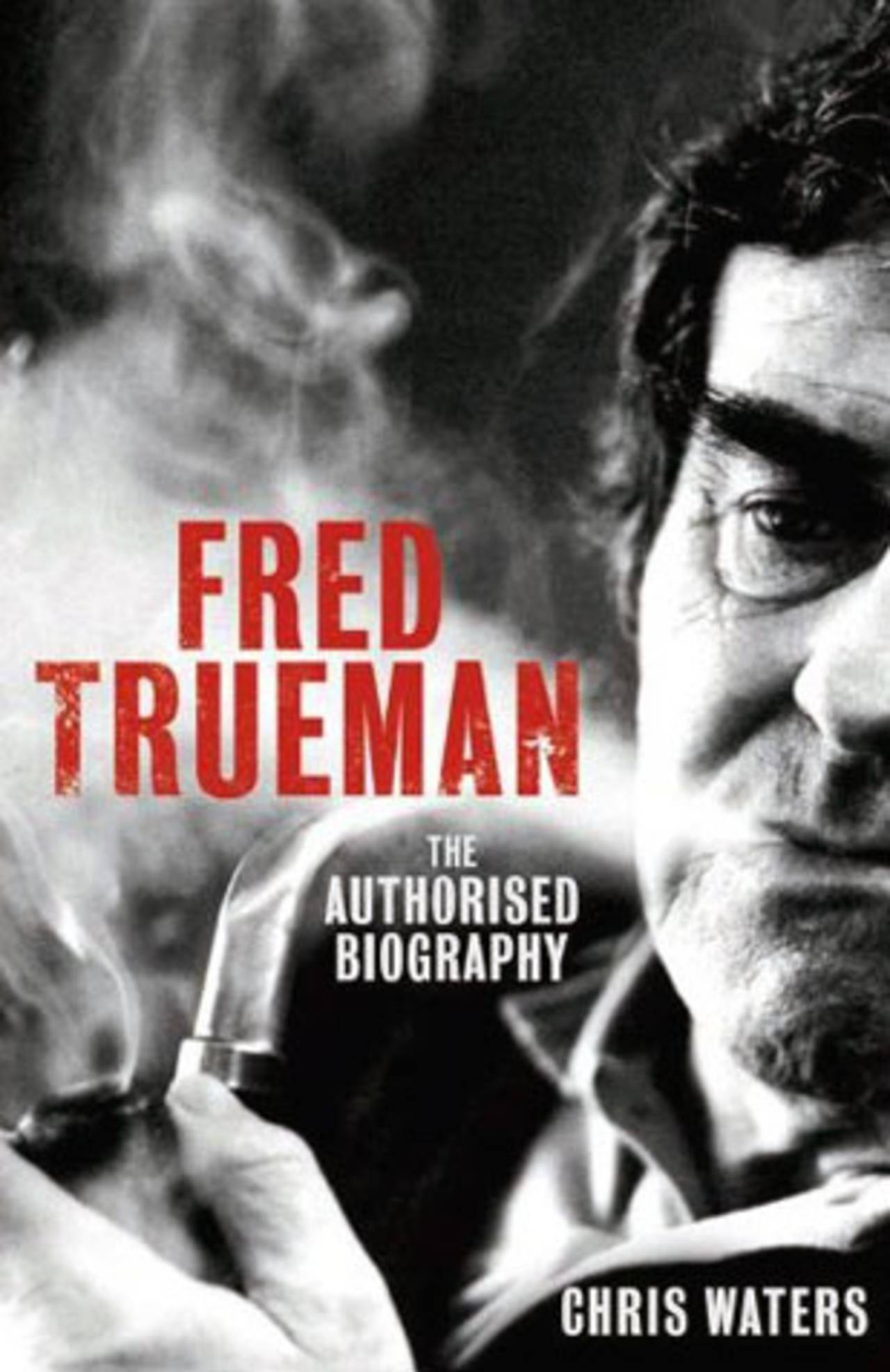Fiery, contradictory, all-too-human Fred
Trueman's latest biographer does a better job of fleshing out his subject than his more illustrious predecessors - perhaps because he didn't know him as well
Rob Steen
12-Nov-2011

Aurum Press Ltd
Five years ago, when the Yorkshire Post invited readers to select the county's greatest XI, Fred Trueman polled the most votes - more than Len Hutton, Herbert Sutcliffe, Geoff Boycott and Wilfred Rhodes. Informed that he had been nominated on 99% of the 5000-plus ballots, Trueman expressed his delight before another thought gradually dawned: "Er, only 99%? I tell you what, I'd like to catch up with the bastards who didn't vote for me."
Chris Waters, latest in the line of illustrious Yorkshire Post cricket correspondents, quotes this line with the same relish as that with which he tackles his fascinating subject. It is, of course, both typical and stereotypical Trueman: ornate enough to have been rehearsed and reheated countless times over, arrogant enough to be credible (asked by Michael Parkinson to think of a working title for an autobiography, the response passed straight into legend: "'Ow about: 'T' Definitive Volume Of 'T' Greatest Ruddy Fast Bowler Who Ever Drew Breath?'"). If ever a cricketer's reputation preceded him, it was assuredly Fred's. None, certainly, has been the subject of more dressing-room yarns or after-dinner wisecracks; some are even true.
Trueman was an aggressive, sometimes vicious bowler with a flair for self-mythology, self-promotion and waging the class war on his own. Fame and infamy sat side-by-side on those chipped shoulders. He was big enough in his own time; had he made his Test debut in 2002 rather than 1952, in a world of satellite TV and instant communication, one shudders to imagine how dazzling his star would be. So vast does he still loom in the popular imagination, if a vote were taken to acclaim England's greatest fast bowler, he would probably still pip John Snow and Bob Willis; Harold Larwood too. Unlike those luminaries, he failed to make an indelible stamp on a victorious Ashes series, but where Larwood, Snow and Willis fanned the flames of controversy almost despite themselves, Trueman did not so much embrace the spotlight as eat it whole. And demand another helping.
Waters is Trueman's third biographer. Unlike his predecessors, Arlott and Don Mosey, he was not compromised by having worked closely with his subject on previous books. It was Trueman, nonetheless, who proposed, shortly before his death in 2006, that Waters write this book. The result is the fullest picture yet of a great sportsman and all-too-human being.
Trueman, attested Arlott, "was the kind of fast bowler he had created for himself; a larger-than-life-sized figure compounded in the imagination of a boy from the fancies, facts, loyalties, cricket, reading, traditions and all the other influences of a semi-rural, semi-industrial area of South Yorkshire in the nineteen-thirties". Waters goes one better by capturing that South Yorkshire, in particular Maltby, the grim and grimy pit town where Trueman grew up in severely straitened times.
Besides eliciting memories from several family members and team-mates, Waters extends his net of witnesses to Cecil Kippins, the umpire at the centre of the most notorious incident on Trueman's maiden tour. Cast as the scapegoat for what the Times called "the second most controversial tour in cricket history", that Caribbean sortie in 1953-54 begat Trueman's reputation as a roughneck and a troublemaker, but he was wrongly fingered.
Context was all. Emboldened by changes in India, Jamaicans and Bajans and Trinidadians were clamouring for independence. "For God's sake, beat these people," Charles Palmer, the assistant manager, recalled members of the white ruling class pleading at official functions, "or our lives won't be worth living." During the game against British Guiana in Georgetown, Kippins no-balled Trueman, who was already seething at a dropped catch and a string of rejected lbw appeals. Kippins suddenly walked towards gully, where Hutton, the MCC captain, was fielding, and spoke to him. At stumps, Trueman was accused of calling Kippins "a black bastard", which despite vehement protestations of innocence saw him docked his £50 tour bonus. Kippins, now living in the US, holds his hands up: "It was my fault entirely. It wasn't Freddie, it was Johnny Wardle. I mistook one for the other." He did not correct his error, he added, because he'd fallen out with Hutton.
Trueman never played under Hutton again and missed 23 of England's next 26 Tests. Had he been born in less class-conscious times, he would surely have exceeded Ian Botham's national record of 383 Test victims instead of settling for 307; bar Simon Jones (59 at 47.8), no English player with 50 wickets on his CV since the First World War has matched Trueman's strike-rate of 49.4. The year before he died, reunited for the first time in 30 years with the other three standout Yorkshire cricketers of the second half of the 20th century, Boycott, Brian Close and Ray Illingworth, he was still incandescent: "The selectors seemed more interested in picking decent blokes than decent bowlers."
Gallantly, respectfully, Waters allows Arlott the final word: "He could be very harsh and gentle; witty and crude; unbelievably funny and very boring; selfish and wonderfully kind… and he was, when the fire burnt, as fine a fast bowler as any." Nevertheless, the previous 296 pages do more to explain those contradictions than his vaunted predecessor did.
Fred Trueman: The Authorised Biography
Chris Waters
Aurum Press Ltd
A$35

Chris Waters
Aurum Press Ltd
A$35
Rob Steen is a sportswriter and senior lecturer in sports journalism at the University of Brighton